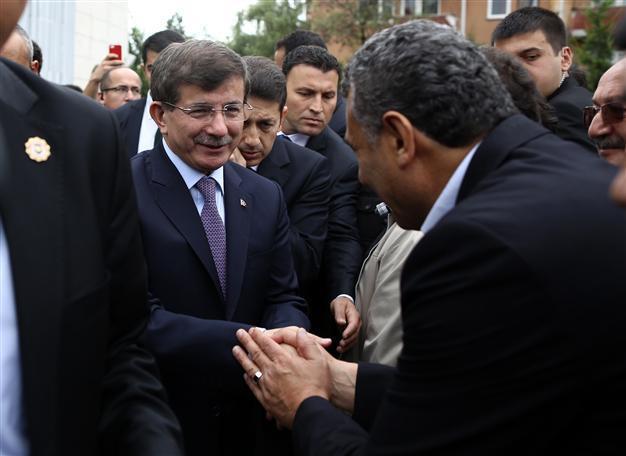Turkish gov’t to launch fresh bid to embrace Alevis
ANKARA

AA Photo
The ruling Justice and Development Party (AKP) is planning to take new steps embrace Turkey’s Alevi citizens, with Prime Minister Ahmet Davutoğlu also announcing that he will visit Hacıbektaş in the upcoming days within the holy month of Muharrem.In an Oct. 30 address to the nation titled “On the Way to a New Turkey,” Davutoğlu said he wanted to spend the Day of Ashura with Alevi citizens in the town of Hacıbektaş in the Central Anatolian province of Nevşehir to commemorate the martyrs of Karbala. Hacıbektaş is a popular pilgrimage site for both Alevi and Bektaşi people in Turkey.
Over the last few years, the government has held a series of “Alevi workshops,” the first of which took place in June 2009. Despite these much vaunted openings generally failing to meet expectations, Davutoğlu argued that they led to a number of important steps being taken.
“Now, through new steps that we will take, God willing, we are preparing to tie this process to favorable results,” he said, pledging to take “concrete steps.”
“God willing, on Nov. 8, that’s to say on the 13th day of the month of Muharrem, I wish to personally attend the Day of Ashura arranged by the Hacı Bektaş Association in Hacıbektaş,” Davutoğlu said, adding that he wanted to commemorate the martyrs of Karbala with “Alevi friends.”
“We will all together break the Muharrem fast and will together have Ashura made for the memory of Karbala martyrs,” he said, referring to the special pudding made of wheat, nuts and fruits that is traditionally eaten during the Muharrem fast.
In the Battle of Karbala of 680 A.D., the supporters and relatives of the Prophet Muhammad’s grandson Husayn ibn Ali were all killed by the forces of Yazid I, the Sunni Umayyad caliph, who Husayn refused to recognize as caliph. The dead are regarded as martyrs by Muslims, and the battle has a central place in Alevi and Shiite history and tradition.
Hacıbektaş is home to the tomb of mystic Hacı Bektaş Veli. Alevism is widely perceived as a liberal sect of Islam, although a few characterize it as a belief system separate from Islam. Alevis, who are described as followers of the Caliph Ali, the nephew and son-in-law of the Prophet Muhammad, display religious practices distinct from Turkey’s Sunni majority. The order founded on the teachings of Hacı Bektaş Veli is called “Bektaşi,” while the term “Kızılbaş” usually refers to the Alevi Kurds of Dersim.
















